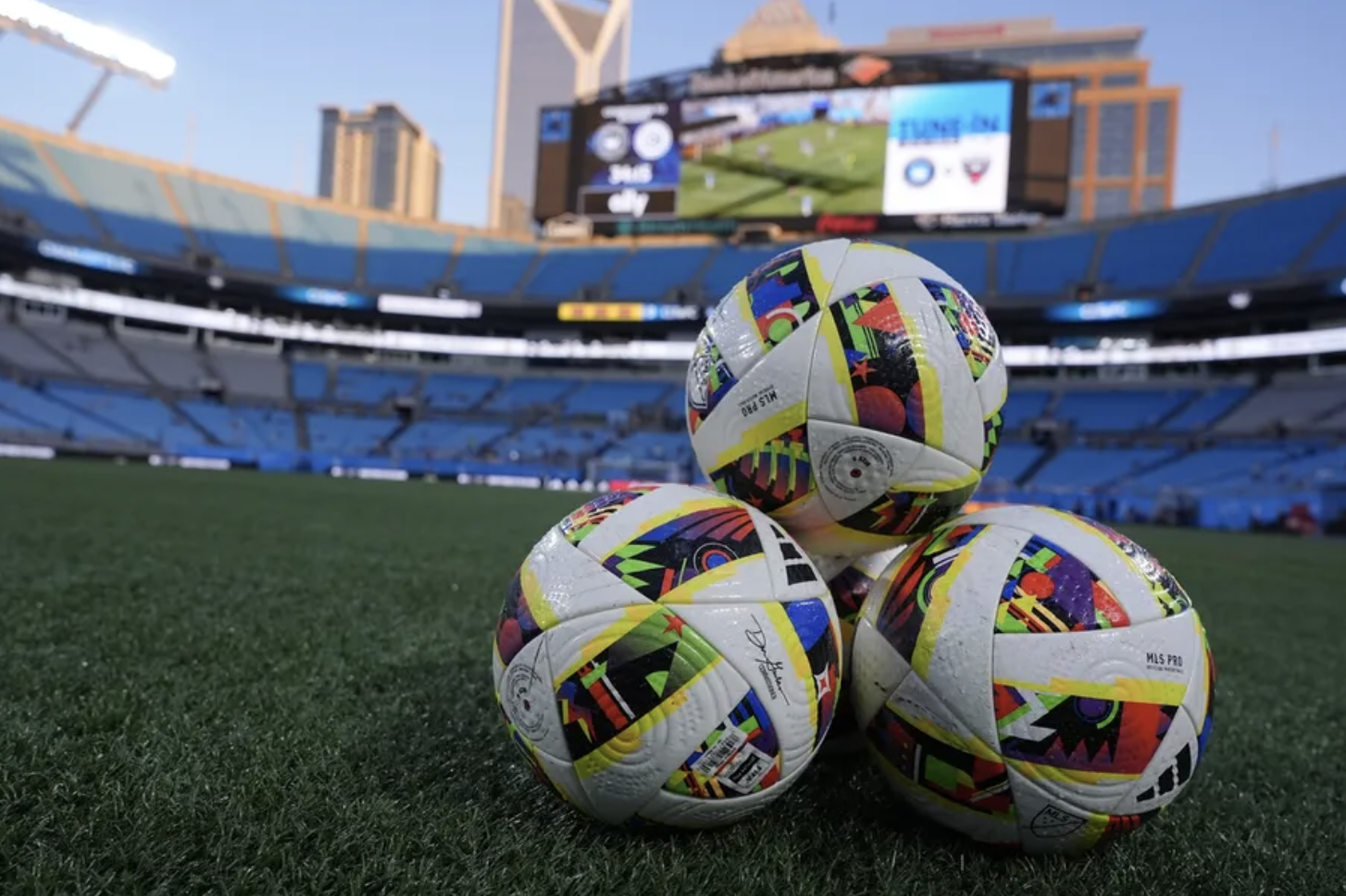
As Wrexham AFC of Welcome to Wrexham fame prepares for its first season in the EFL Championship, suddenly they’re not the only lower-tier soccer team besieged by a documentary crew.
There’s the recent debut of the Prime Video documentary Built in Birmingham: Brady & the Blues, starring seven-time Super Bowl-winning quarterback Tom Brady nailing the ignorant American archetype so well that you swear it’s a bit.
There’s Running With the Wolves, an ESPN venture to tell the story of Kelly Ripa and Mark Consuelos’ stewardship of Italian third-tier side Campobasso FC. The best thing that series has going for it is that most people haven’t heard of it.
Then there’s the direct offshoot from Wrexham co-owners Ryan Reynolds and Rob McElhenney, as they partner with Eva Longoria to tell the story of Mexican second-tier side Necaxa in a documentary series of the same name. Set for debut on FXX on Thursday, it’s been nearly impossible to avoid ads while watching any soccer programming in the past couple of weeks.
It’s a little like the summer of 1999, when Blink-182’s Enema of the State got all the flowers it deserved but was also to blame for all the Sum 41, Good Charlotte, SR-71 and newer music from The Offspring that radio listeners suddenly had to endure.
After asking “What’s My Age Again?” maybe there’s a more important question: Why don’t any of these American stars want to make content about American soccer?
No doubt, one problem is the absence of an open pyramid league structure that allows for a rapid rise like the one Wrexham has enjoyed with three consecutive promotions. Even if you don’t think promotion and relegation would solve all of America’s soccer problems, it’s hard to deny the romance of the concept that allows for such audacious rags-to-riches stories.
The bigger issue, though, is the belief that American soccer doesn’t bring the same intensity, authenticity or relevance to its communities. And it’s one of the self-fulfilling prophecies America must escape if we want to become a soccer nation and not just a nation that plays soccer.
Unfortunately, there’s no easy fix, no best practices and no shortcuts. Authenticity and relevance are the most precious of qualities, in part because they’re the most enigmatic, often built unpredictably over multiple lifetimes that the 30-year-old MLS doesn’t have yet.
Reynolds and McElhenney have made lots of excellent decisions as stewards of their club, but the reason those decisions matter to the Wrexham community is because of more than 100 years of history that preceded them.
Until we have that same kind of history, where and when the game truly will take hold in American communities is harder to predict.
And it doesn’t come just because you name a team some version of “FC” or “SC” or “City” or “United.” Those names make you authentic if your founders were late 1800s London munitions plant workers — not so much if they’re the guys who paid $2.275 billion for the Carolina Panthers.
The best soccer story in the nation this summer might be Vermont Green FC of USL League Two, a level so low that it’s not considered fully professional. The team became something of a sensation in Burlington, Vermont, this summer on its way to the USL 2 title — and its fans conjured one of the most clever tifo displays anywhere on Earth. But you won’t find a single person involved in the club who expected that kind of community response.
So what do we do until every community flocks to its football club like Burlington has? The only thing we can do: wait another generation or two and, in the interim, be thankful that at least we’re not owned by Tom Brady.